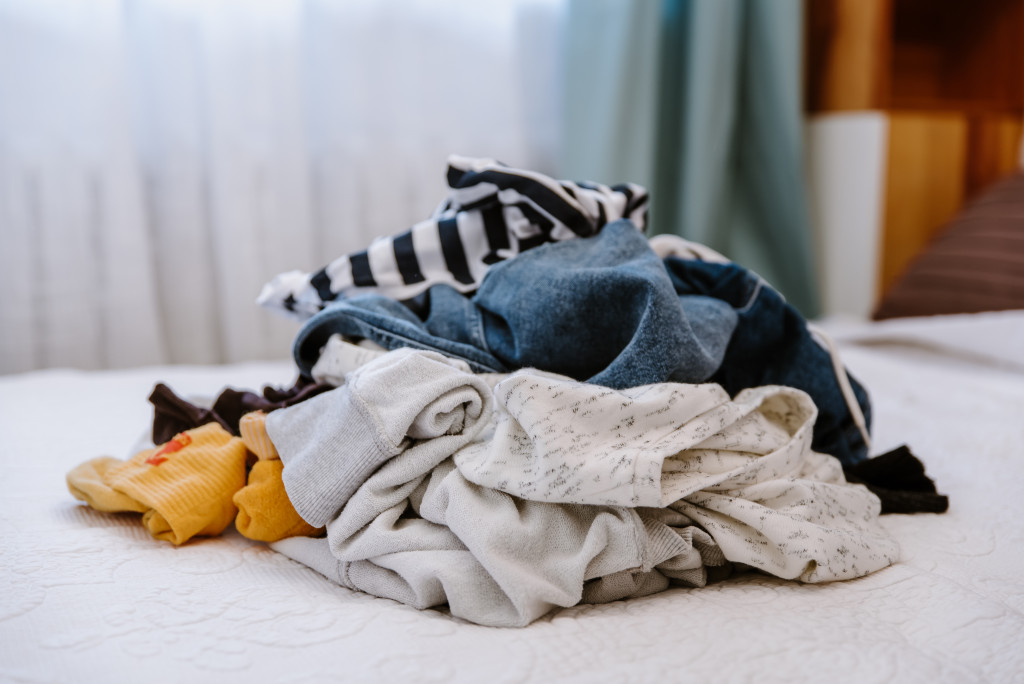Whether you’re trying to make a good impression on a job interview or simply looking to feel more put-together, your clothes can profoundly affect your mood and confidence level. And while there’s no need to break the bank on designer duds, taking the time to build a wardrobe of well-fitting, stylish clothes can make a world of difference in how you feel about yourself. In addition, clothes can also be used as a form of self-expression. By choosing items that reflect your personality and style, you can let the world know who you are without saying a word.
However, it’s easy to forget that your clothes require care and maintenance. It’s important to take care of them if you want them to last. Neglecting your clothes can lead to several problems, such as shrinkage, fabric damage, and color fading. Caring for your clothing doesn’t have to be a chore. With a few simple tips, you can keep your clothes looking great wash after wash. Here are a few easy ways to get started:
Sort your laundry before washing
Sorting your laundry before washing it is an important step in taking care of your clothes. It helps to extend the life of your clothes by preventing them from getting damaged in the wash. There are three main ways to sort your laundry: color, fabric, and weight.
Sorting by color is the most common way to sort laundry. It helps to prevent colors from bleeding and keeps dark clothes from fading. Sorting by fabric is also important. Delicate fabrics should be washed separately from heavier fabrics to prevent damage. Finally, sorting by weight can help to prevent overloading the washing machine. Heavier items should be washed separately from lighter items to ensure that they all get clean. By taking the time to sort your laundry before washing it, you can help to keep your clothes looking their best for longer.
Read the labels
The care label is there for a reason. It’s full of important information that can help you extend the life of your clothes. For example, did you know that shirts made with wool or linen should be hung to dry? Or that jeans shouldn’t be tumble-dried on high heat? By reading the labels, you can avoid damaging your clothes and prevent shrinkage, color fading, and other issues.
Use softened water
You might not realize it, but the type of water you use to wash your clothes can actually make a big difference in the quality of your laundry. Hard water, which contains high levels of minerals like calcium and magnesium, can leave behind deposits that can make fabrics stiff and rough. In contrast, soft water is free of these minerals, which can help keep your clothes feeling soft and looking their best. In addition, soft water is more efficient at dissolving detergent, so you may find that you need to use less detergent when washing your clothes in softened water.
So if you want the best wash for your clothes, consider investing in a water softener. This device will remove the minerals from your water, leaving you with soft water that’s gentle on fabrics. Hire professional water softener installation services to have one installed in your home. They’ll be able to get the job done efficiently, and they can also advise you on the best type of water softener for your needs and maintenance practices.
As you can see, there are many benefits to using softened water for laundry. So if you want your clothes to look their best, be sure to use softened water the next time you do laundry.
Invest in lint rollers and stain removers
Lint rollers are a must-have for anyone who wears dark colors or frequently sits on upholstered furniture (like sofas and chairs). They’re also great for removing pet hair from clothing. Stain removers are another helpful tool in your laundry arsenal; they can help remove tough stains without damaging delicate fabrics. Just be sure to test a small hidden area of the fabric first to ensure that the remover won’t cause any damage.
Don’t overdo it on the detergent

More detergent doesn’t necessarily mean cleaner clothes—in fact, using too much detergent can make your clothes dirtier. That’s because detergent leaves behind a residue that can attract dirt and other airborne particles. To avoid this problem, use only as much detergent as recommended on the bottle (or package). Then, if necessary, add a little more if your clothing is particularly dirty or smelly—but don’t go overboard.
By following these simple tips, you can keep your clothes looking their best after washing. Plus, taking good care of your clothing will help them last longer—saving you time and money in the long run. So remember to sort your laundry, read the labels, use softened water, invest in lint rollers and stain removers, and don’t overuse detergent.
